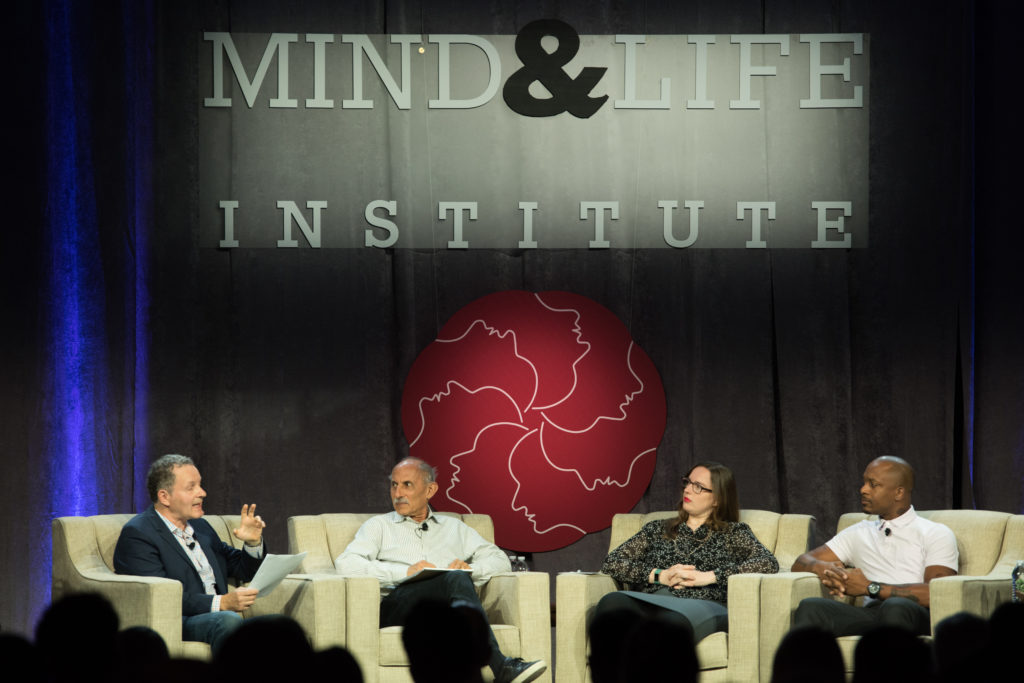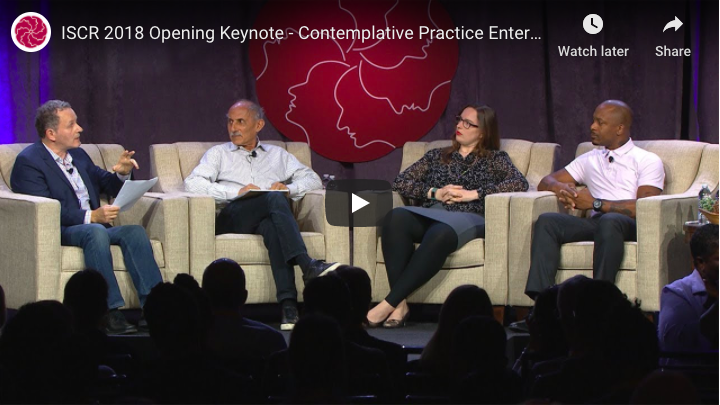Digital didactics, such as MOOCS and browser-based online programs have opened up realms of content to thousands who for reasons of geography, expense or convenience would otherwise not have had access to these materials. Allowing anyone around the world to take a course at Stanford or learn Geometry on Khan Academy has helped address educational inequalities due to social class and the opportunity divide between developed and developing countries. The same principles of e-learning used in these programs are among those used to digitize content that is interpersonal and interactional and the last 10 years has seen significant growth in Apps and online programs devoted to contemplative practices such as various forms of meditation, mindfulness and compassion. In the best of worlds, a program designed to provide training in contemplative practice via the web should have inputs from both contemplative teachers and technology experts. This would guarantee a measure of quality and integrity in what is being built and how it is being offered. Although numerous such programs already exist, their adherence to these principles is largely unknown, and this is potentially problematic.
This panel will discuss the pitfalls and promise of transferring practices that have been traditionally taught within a dyadic context onto an automated, online platform. Panelists who are active in this digital space will engage in an interactive conversation around a key set of questions/concerns, including:
- Meditation apps are accessed by millions of people and yet, strikingly few continue to use them one month later. Is this a positive or negative development, or something we don’t yet fully understand?
- Is there an experiential limit on how well contemplative practices can be taught through video and online interactivities in the absence of relationship with a contemplative teacher?
- Apps rely on constant notifications and reminders to engage users. Do they inadvertently reinforce the types of automatic, doing based mindsets that meditation practice is intended to address?
- How can we safeguard intentions to be of service to users from the desire to monetize their participation?
- Can we as a field set standards and educate users through the identification of programs that are high integrity exemplars of this work?


Jack Kornfield
Spirit Rock Center
Board Member
Jack Kornfield trained as a Buddhist monk in the monasteries of Thailand, India and Burma. He has taught meditation internationally since 1974 and is one of the key teachers to … MORE

Acacia Parks
Dr. Parks’ research focuses on self-help methods for increasing well-being via books and digital technology. She is Chief Scientist for tech startup Happify, which brings the cutting edge in research-based … MORE

Darnell Lamont Walker, PhD
Darnell Lamont Walker, Ph.D., is an award-winning writer and filmmaker, currently traveling and living around the globe collecting stories to share. He is a native of Charlottesville, Virginia, and a … MORE

Zindel Segal, PhD
University of Toronto-Scarborough
Convening Faculty, Fellow, Planning Committee Member
Zindel Segal, PhD is Distinguished Professor of Psychology in Mood Disorders at the University of Toronto Scarborough. He pioneered the use of mindfulness meditation for promoting wellness in the area … MORE


